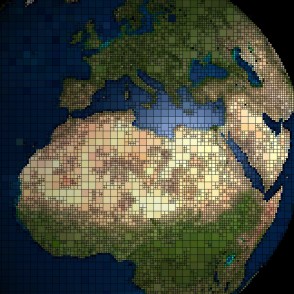By Erin Ross, Transcript Correspondent
Global studies and international perspectives will continue to flourish at Ohio Wesleyan University (OWU) as a result of the Global Scholars Program’s growth in presence, experience and participation since its inaugural year last fall.
Created for students who have an interest in global issues and are pursuing a major with an international focus, the Global Scholars Program admits a small number of students each year. Jeremy Baskes, director of the Global Scholars Program, created the program through the Global Studies Institute.
Baskes envisioned the program to bring together students with shared global interests and present them with unique learning and travel opportunities.
“We see it as a recruiting tool, Baskes said. “It is an opportunity for students who have those interests to come to Ohio Wesleyan and work closely with other students who have similar global interests or international interests.”
The program proved its recruiting power as the number of first-year global scholars increased from 11 in its inaugural year to 16 this fall.
“We made really good progress in increasing the number of students this year and I am hopeful that we will do the same for next year,” Baskes said.
Nathan Amador Rowley, assistant director of the Global Studies Program and assistant professor of geology and geography , said that an increase in the program’s presence allowed them to attract more students.
“When I talk to faculty members, they seem to understand what the Global Studies Institute is and that we have global scholars … I would say the presence is probably the big difference,” Rowley said.
The students admitted into the program must complete certain requirements in order to graduate as a global scholar. Such requirements include a first-year seminar, coursework in a major of international focus, competency in a foreign language, studying a semester abroad and the completion of a senior thesis, according to OWU’s website.
The evolvement of the required first-year seminar played a major role in the growth of the program’s dynamic. This year’s seminar, “Climate, Capital and Culture,” is co-taught by Rowley and Mary Anne Lewis Cusato, assistant professor of French.
In contrast to last year’s instructors, Rowley and Cusato are both members of the Global Scholars Institute. This led to growth in student-faculty relationships. The Institute faculty now see the global scholars for four hours a week rather than just in organized social circumstances.
“That develops a different relationship that allows us to advise students in a non-formal way,” Rowley said. “We didn’t make those kinds of deep connections with last year’s students as much.”
The first-year seminar is also a UC 160 course this year. This addition lessened the workload for first-year global scholars who, last year, would have been required to take a separate UC 160 course in addition to their first-year seminar.
Additionally, the freshman global scholars will be required to complete theory-to-practice grants by the end of their first-year seminar.
“Whether they actually submit it or not … leaving this class, they will know how to think through a problem, write it down, and propose some sort of travel,” Rowley said.
In addition to growth within the first-year seminar, the Global Scholars Program also expanded its staff by utilizing the experience of its, now sophomore, scholars. This year the program hired Paige Hunter, member of the Global Scholars inaugural class, as an intern.
“We really wanted to pick one of our global scholars. We want to start utilizing them more as mentors to the earlier classes,” Baskes said.
Within her position, Hunter worked on creating a variety of social media websites for the program and better advertised the many campus events that were global in nature. She will continue this work while also adding videos of the global scholars and other material to the program’s website.
“Even though my position is new, I think it adds to the program by increasing the level of communication and connection,” Hunter said.
The program has thus far met the expectations of the staff and displays potential for future improvement.
“As we are learning how to do things, little by little, we do new things. It is growing and evolving, and I think we are feeling really good about the Global Scholars Program as a whole.” Baskes said,
Although the program is new and is continuing to grow, the faculty expresses the need for future funding. At the start of the program The Global Scholars Institute received $200,000 from the Andrew W. Mellon Foundation that was meant to last them four years. As the end of those four years approaches, the Institute must find more funds for the program to continue to grow.
“If we had more money … I could imagine bringing speakers, taking students on more local trips … Money would just help so much,” Rowley said.
